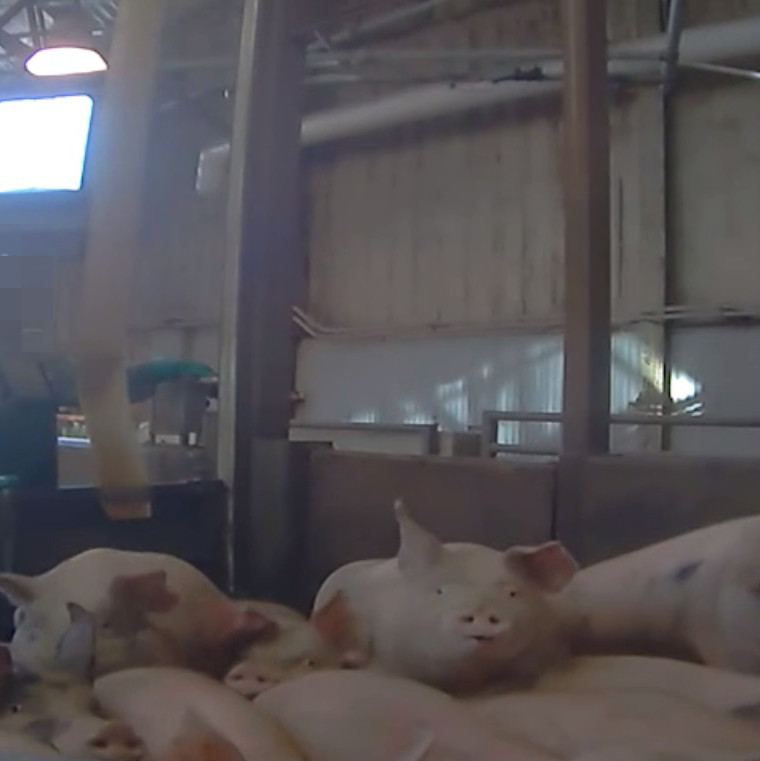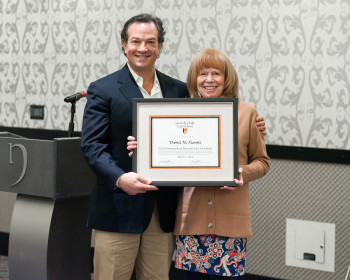Court Rejects USDA’S Attempt To Derail Lawsuit Challenging Weakened Pig Slaughter Rules
Open gallery

ROCHESTER, N.Y. — A federal district court judge ruled today that a lawsuit challenging a 2019 decision by the U.S. Department of Agriculture to reduce federal oversight and eliminate line speed limits at pig slaughterhouses can move forward.
The lawsuit, brought in 2019 by seven animal and environmental protection groups, challenges the USDA’s decision to reduce federal oversight at pig slaughterhouses and eliminate limits on the slaughter speeds, exposing pigs to greater suffering and flouting federal humane slaughter, meat inspection and environmental-protection laws.
“We are thankful that the court has recognized the many harms that result from deregulating pig slaughter, and that we can move on to the merits and seek to ensure that pigs raised for food — who already suffer tremendously at every point of their short lives, from having their teeth, tails and testicles cut off without any painkillers, to being crammed into overcrowded trucks without temperature control — are at least afforded minimum legal protections at slaughter,” said Pamela Hart, executive director of the Center for Animal Law Studies’ Animal Law Litigation Clinic at Lewis & Clark Law School, which is representing the plaintiffs.
In responding to USDA’s motion to dismiss this case, the plaintiffs filed 15 sworn statements with the court detailing the numerous harms that would result from the deregulation, including a statement from a veteran USDA inspector that details numerous increased risks to pigs and public health that she personally witnessed as a result of faster line speeds.
The inspector’s documented observations include workers raising paddles over their heads to strike pigs and an increase in pig carcasses with scalding-tank water in their lungs — an indication that the animals may have still been breathing when dropped in the tank. She also witnessed more fecal contamination of pig carcasses as well as toenails, hair and abscesses entering the food supply.
Those observations are similar to incidents documented in a 2015 investigation at Quality Pork Processors, one of the slaughterhouses operating under the deregulatory program. The investigation was conducted by Animal Outlook, one of the plaintiffs in the current legal challenge.
“This victory is an important step in the fight to prevent the release of even more hazardous air and water pollution from slaughterhouses and factory farms,” said Hannah Connor, a senior attorney at the Center for Biological Diversity. “It’s a disgrace that the USDA is continuing to put corporate profits ahead of protecting our air and water.”
Earlier this year in response to a parallel lawsuit brought by the United Food and Commercial Workers International and Public Citizen against this rule, a federal district court in Minneapolis ruled that the USDA acted unlawfully when it eliminated plant line-speed limits without considering the increased risk of injury to plant workers. In May, the USDA responded to the decision by making clear that it would move forward with adopting the court’s ruling and announcing that establishments operating under the challenged rule had until June 30 to revert back to a maximum line speed of 1,106 animals per hour.
“Farm Sanctuary is grateful for this important initial ruling denying the government’s motions to dismiss,” said Emily Von Klemperer, general counsel for Farm Sanctuary. “Without this ruling and an opportunity for the plaintiff organizations to present the merits of the case to the court, the USDA’s rule would put pigs and slaughterhouse workers at significantly increased risk of grievous injury, and risk pigs too sick to walk entering the food supply without further consideration. Thankfully, these inhumane practices can now be addressed substantively in court.”
Today’s ruling was handed down by a U.S. District Court judge for the Western District of New York.
The plaintiffs in the lawsuit are Farm Sanctuary, Animal Equality, the Animal Legal Defense Fund, Animal Outlook, the Center for Biological Diversity, Mercy For Animals and North Carolina Farmed Animal Save.
They are represented by Jessica Blome on behalf of the Center for Animal Law Studies’ Animal Law Litigation Clinic at Lewis & Clark Law School, the only law school clinic in the world dedicated to farmed animal advocacy. Attorneys from Animal Equality, Animal Legal Defense Fund, the Center for Biological Diversity and Lewis & Clark Law School’s Earthrise Law Center are serving as co-counsel.
Law Communications is located in room 304 of Legal Research Center (LRC) on the law Campus.
MSC: 51
email jasbury@lclark.edu
voice 503-768-6605
Cell: 626-676-7923
Assistant Dean,
Communications and External Relations, Law School
Judy Asbury
Law Communications
Lewis & Clark Law School
10101 S. Terwilliger Boulevard MSC 51
Portland OR 97219

